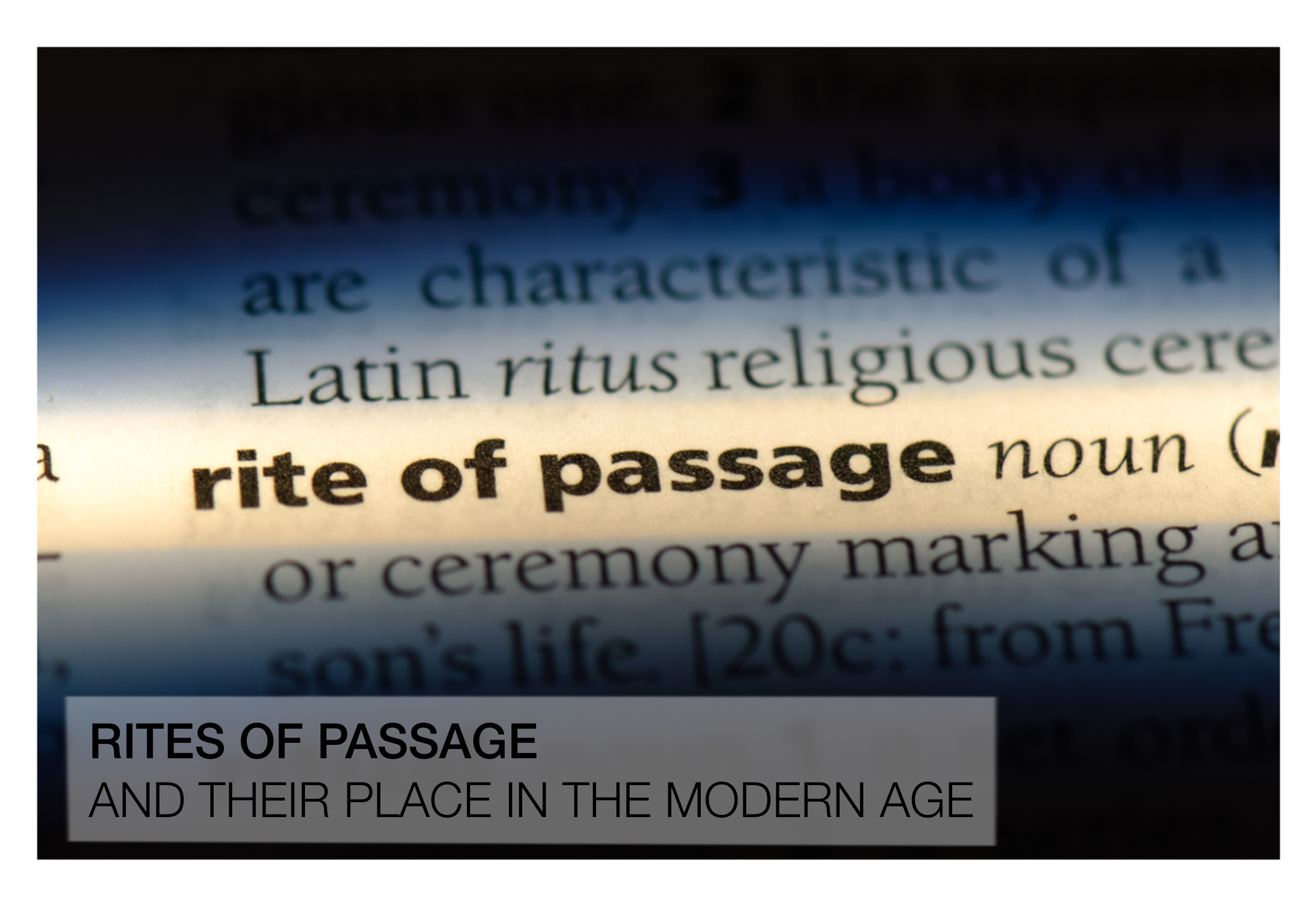Earning your stripes, paying your dues, walking the walk… In many businesses and families, the next generation is challenged to perform some rites of passage to earn their ascension to the next tier of leadership.
The expectation is historic. Junior employees have to start on the mythic mailroom or factory floor to get to the C-suite. In family offices, leaders of the future must “wait their turn,” often fetching coffee for the elders or otherwise toiling in the trenches, as aging patriarchs decide for themselves “when” the time has come to relinquish the reins.
Some rites span back thousands of years. Religious examples include circumcision, bar/bat mitzvah, baptism, aqīqah (animal sacrifice upon the birth of a child), upanayana (acceptance of a student by a preceptor), and confirmation. Some would argue such rites are the foundation upon which modern society finds its footing in tenuous times. As per Google, healthy rites welcome children into adulthood in “a conscious and intentional process” with “personal purpose, a sense of cultural history, personal and social responsibility.”
But have rites of passage in business and family offices lost their relevance in the modern age?
The negative implications cannot be ignored. This is especially true in American society, where rites seemingly are more pervasive and excused than in other cultures (consider hazing in college fraternities, which is estimated to have resulted in over 100 deaths since 2000).
Many rites are built upon historic behaviour. Management treats subordinates often the way they were treated themselves. During my career in finance, I worked with a colleague who had previously worked for one of the big four accounting firms. We had some issues because of his behaviour toward female colleagues. His justification was that as a junior his manager – a woman – had been emotionally and physically abusive to him. To him, this kind of attitude to subordinates was acceptable as he “came out fine and it didn’t harm him.” Or did it?
To these and other rites, I’m calling hogwash. Rites of passage with no clear tie to beneficial lessons have no place in business or society. Sure, a new hire or young manager has to work their way up through an organisation; few are the young talent hired for an immediate path to management.
Instead, both senior and subordinate must seek out every best practice – historic or modern – and apply them to their current situation. Mentors and leaders each have mannerisms, procedures and habits – good and bad – that they will share, often unwittingly. It’s up to the mentor to display their best behaviours, and for the mentee to determine which are worthy of adopting and carrying forward. Whether it comes from the cleaning crew or the CEO, each has positive examples to share.
Some, especially those who studied business etiquette in lofty business schools, have the habit of managing up (i.e. they would focus their attention on their elders or supervisors in hopes of currying favour). Throughout my career, I focused on managing down, encouraging my team to be the best people they could be. I would assign credit for our successes and I would take responsibility for our failures. Then, privately, we would fix it together. In my mind, that is how you build successful teams willing to go to battle with you.
Whilst a manager at a global financial services firm, I had a new hire who on his first day on my team asked me around what time I anticipated arriving and leaving each day. His thinking, “I need to be there so the boss sees me at work.” To me, this was form over substance. I simply told him that I expected him to arrive early enough and stay late enough to ensure his work gets done.
Whether beating the boss to the clock or pandering in hopes of currying favour, such duplicity is not only disingenuous; it keeps those around you wary of your intentions and abilities.
Was my approach unconventional? Absolutely. But I argue that no other team was more committed and cohesive at those firms where I managed teams. Those are rites of passage worthy of passing on to the next generation.
If your organisation or family office could use some help wading through historic conventions and weeding out worthless rites from worthy traditions, let’s talk. You may find a more cohesive, functional and focused team of future leaders.

Leave A Comment